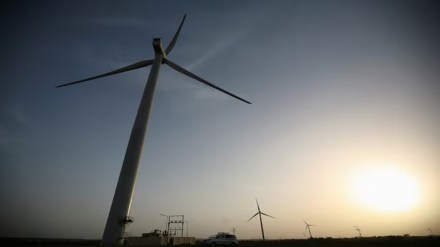Power companies seem to be betting big on hydel pumped storage projects. While renewable energy firm ReNew is the latest to make a foray into the space, existing players such as Adani Green Energy, Avaada Group, Tata Power and JSW Energy are looking to beef up their presence.
Pumped storage projects (PSPs) are hydroelectric systems that store energy by pumping water from a lower reservoir to a higher one during periods of low power demand and excess power. When the demand is high, the water is released back through the turbines to generate electricity, thus balancing the power grid and reducing fluctuations.
Sumant Sinha-led ReNew is in talks with several states for PSPs. It has signed MoUs with the Maharashtra government’s water resources department for three PSPs with a capacity of 2.6 GW. It is looking to invest over Rs 10,000 crore in its maiden project in the state, sources in the state government told FE. An email sent to ReNew on the matter did not elicit any response.
Avaada Group is actively exploring opportunities in states, including Madhya Pradesh, Odisha and Rajasthan, to further expand its portfolio in the sector, chairman Vineet Mittal said.
Avaada has already tied up with the Maharashtra government to develop two PSPs with a combined capacity of 2,750 MW with an investment of Rs 14,000 crore These include the 1,500 MW Pawana Falyan project in Pune and Raigad districts and the 1,250 MW Kumbhavade PSP in Kolhapur and Ratnagiri districts.
Avaada is also developing two PSPs in Uttar Pradesh, with an aggregate capacity of 2,190 MW, including 1,560 MW in Sonbhadra and 630 MW in Mirzapur districts.
“These initiatives are in line with our vision to provide reliable, sustainable, and efficient energy storage solutions across the country, supporting the transition to a low-carbon energy future,” Mittal said.
Adani Green has a pumped storage project development pipeline across Andra Pradesh, Maharashtra, Tamil Nadu and Telangana, with plans to add over 5 gigawatt capacity by 2030, the company said in its FY24 annual report. The company started construction of its first such project of 500 MW on the Chitravathi river at Peddakotia in Sri Sathya Sai district of Andhra Pradesh, utilising an existing lower reservoir. It said it will be developing the upper reservoir.
JSW Energy has a locked-in capacity of 2.4 GWh of pumped storage projects and is targeting a total of 40 GWh of energy storage capacity by 2030, which includes PSPs and battery storage.
After its Pune and Bhivpuri projects, Tata Power is also exploring options to develop a few more similar projects in its existing reservoirs, a company spokesperson said. These projects, with investments of nearly Rs 13,000 crore, will be situated at Shirawta, Pune (1800 MW), and Bhivpuri, Raigad (1000 MW).
Hero Future Energies also plans to participate in these projects in the future. “We have not committed to any technologies specifically and will continue to evaluate pumped storage along with other options on a techno-commercial basis,” Srivatsan Iyer, global CEO at the firm, said. PSPs and battery storage systems are becoming increasingly critical as the energy landscape shifts towards renewable sources such as solar and wind, he added.
Renewable energies such as solar and wind, while clean and abundant, are intermittent. This variability creates challenges for maintaining a stable and reliable energy supply.
PSPs and battery storage address this challenge by storing excess energy generated during periods of high renewable output and releasing it when production is low or when demand spikes, Iyer said.
The Union government’s push for the PSPs is also expected to help the segment. In her Budget speech in July, finance minister Nirmala Sitharaman had announced that the government will bring out a policy to promote PSPs.
